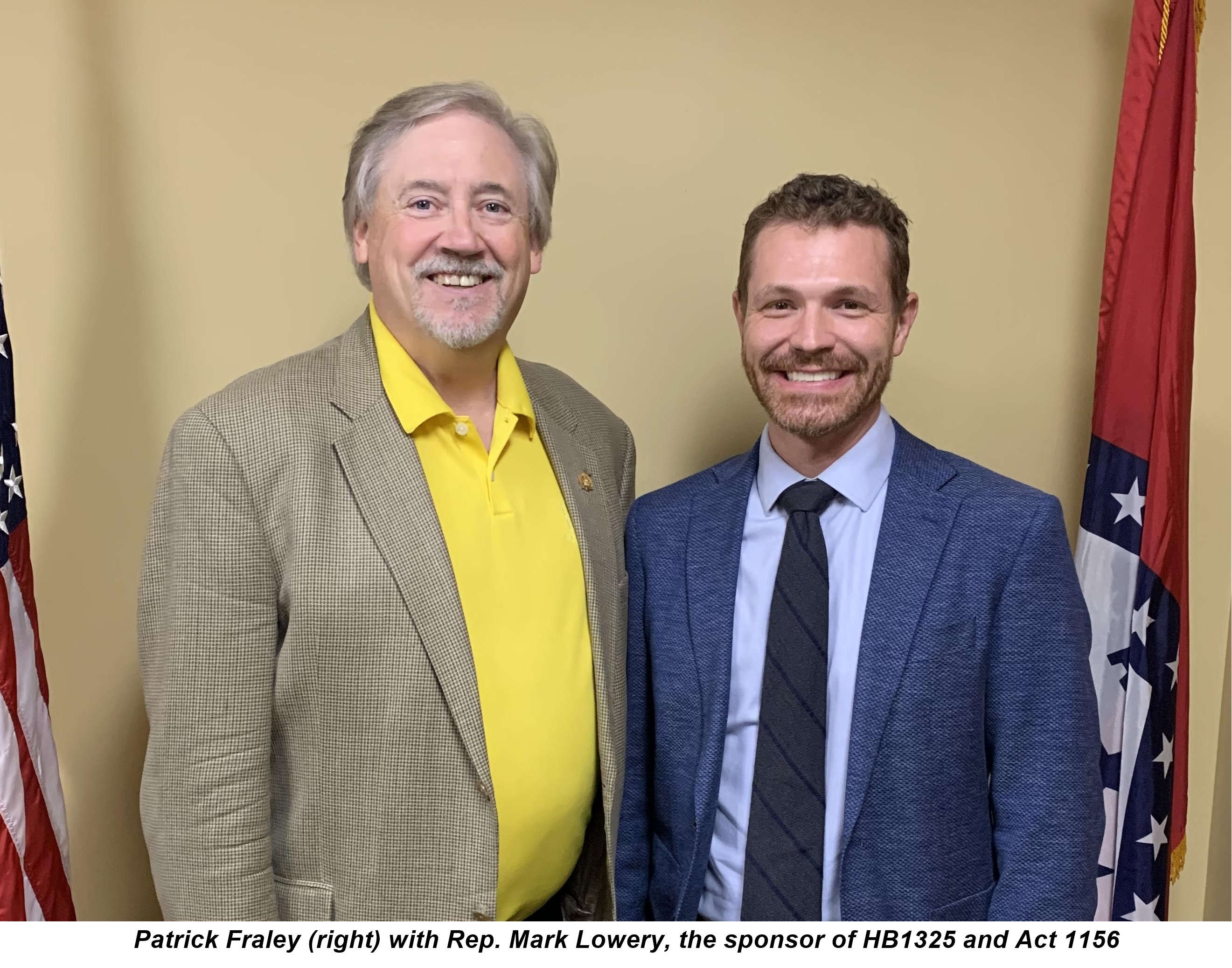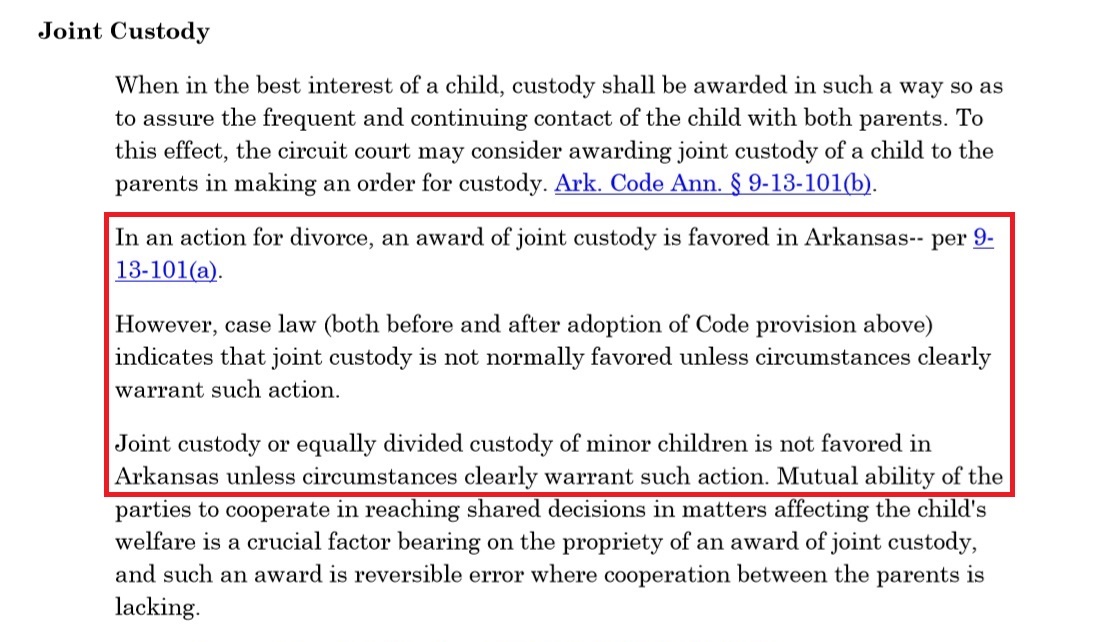
December 4, 2019 by Patrick Fraley
The Law of Inertia states that an object at rest tends to stay at rest, whereas an object in motion tends to stay in motion. Few things have more inertia than family courts, standing still for decades despite major changes in the world around them. Like most states, Arkansas has been working toward laws and practices that support joint custody, equal parental rights, and best outcomes for children. Since the 1970’s, laws have been passed to correct outdated theories and practices to bring family courts in line with public opinion and “best interest of the child.” Why is it taking so long? With each push the legislature has made to bring family law into the modern era, there has been an opposing reaction by the family law industry to keep the status quo.
Arkansas, like other states, used to include maternal preference in its custody laws. This was based on misguided theories like the Tender Years doctrine, alleging that young children needed to be raised by their mothers. As society changed, anti-discrimination ideas advanced, and Tender Years was dismissed, maternal preference was replaced with gender-neutral laws and the “best interest of the child” principle. In Arkansas, this occurred in 1979 with the passage of Act 278, stating the award of custody “be made without regard to the sex of the parent” but solely in the “best interest of the children.” However, the family law industry looked the other way and failed to change its practices. Custody continued to be almost universally given to mothers while fathers were turned into visitors paying child support. Joint custody – what we now know to be the best outcome for children – was almost nonexistent.
It wasn’t until over 20 years later that the Arkansas legislature stepped in to direct the courts toward joint custody. Act 92 of 2003 stated “In making an order for custody, the court may consider awarding joint custody of a child to the parents.” The goal was to have judges start treating joint custody as a viable option. How did they respond? The courts negated the new law with their own appellate case law. In 2006, Bailey v Bailey reversed a lower court order for joint custody on the grounds that joint custody was “disfavored” in the state, giving primary custody to the parent who didn’t want joint custody. Once again, the lawyers and judges held their ground despite the new law allowing joint custody and the mounting evidence behind it.
2013 proved to be a pivotal year for shared parenting in Arkansas when the state legislature passed Act 1156. This law stated “In an action for divorce, an award of joint custody is favored” and defined joint custody as the “approximate and reasonably equal division of time” between parents. The law passed by a margin of 113-9. Unsurprisingly, 6 of the 9 “no” votes were from attorneys. The law was definitely a step in the right direction and has made a difference, but the family law machine still found a way to resist change (and by this point, the known best outcome for children). The courts interpreted the word “favored” to simply mean “not disfavored.” While this allowed judges to order joint custody, it removed any outright preference over sole or primary custody. To drive the point home, the Arkansas Administrative Office of the Courts published a benchbook on family law acknowledging joint custody is favored, but then stated twice that case law continues to indicate joint custody is “not favored in Arkansas unless circumstances clearly warrant such action.”
 Another attempt was made in 2019 to bring Arkansas law in line with modern psychology, public opinion, and proven best outcomes for children. HB1325 was introduced to make joint custody a presumption – a defined legal term with less room for re-interpretation. The only spoken opposition came from attorneys inside and outside the legislature. In addition to the common arguments seen elsewhere, they stated that since joint custody was “favored” in Arkansas, a presumption wasn’t necessary – not being clear as to what “favored” actually meant. As a result, the bill did not make it out of committee.
Another attempt was made in 2019 to bring Arkansas law in line with modern psychology, public opinion, and proven best outcomes for children. HB1325 was introduced to make joint custody a presumption – a defined legal term with less room for re-interpretation. The only spoken opposition came from attorneys inside and outside the legislature. In addition to the common arguments seen elsewhere, they stated that since joint custody was “favored” in Arkansas, a presumption wasn’t necessary – not being clear as to what “favored” actually meant. As a result, the bill did not make it out of committee.
The history of joint custody in Arkansas should provide some insight on the challenges facing shared parenting across the country. The inertia of family courts is a powerful thing and the system is designed to keep the status quo. However, it’s not all bad news. There are 2 sides to inertia. The shared parenting movement has gained significant momentum in the last few years. Changes in one state, like Kentucky or Missouri, are helping spur changes in others. This year’s bill in Arkansas helped us make connections with people in key positions to create change. There is now real movement – and an object in motion tends to stay in motion. If the law of inertia continues to hold true, as long as we push harder and keep going, the change our children and families need is going to come.
Patrick Fraley is an Ear, Nose, and Throat surgeon from Conway, Arkansas. He and his wife, Gina, helped found Arkansas Advocates for Parental Equality (AAPE) in 2015 following our own difficult experiences with custody and family court. AAPE’s goals are to establish a presumption of joint custody, eliminate discriminatory laws and practices toward unmarried fathers, and reform the adversarial approach of family courts in Arkansas.










